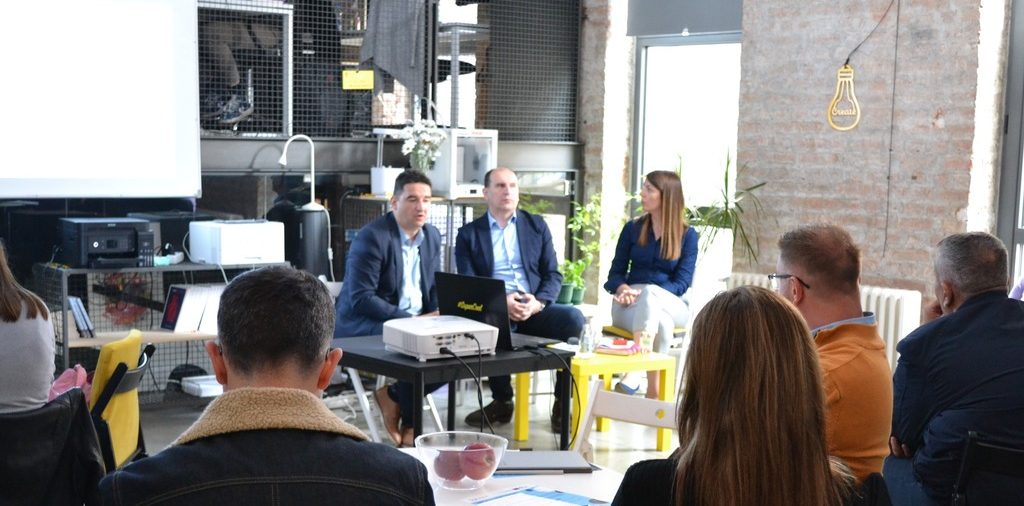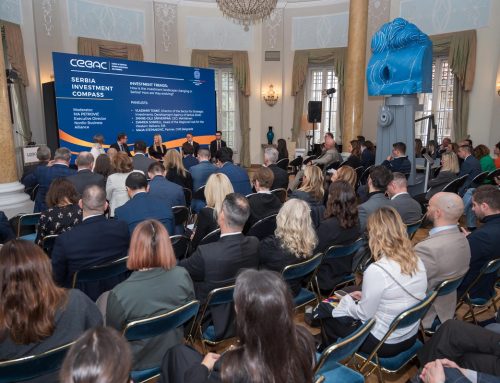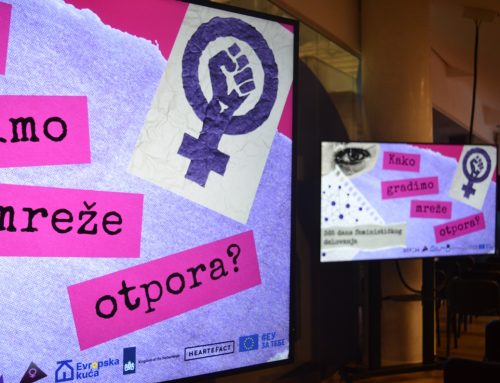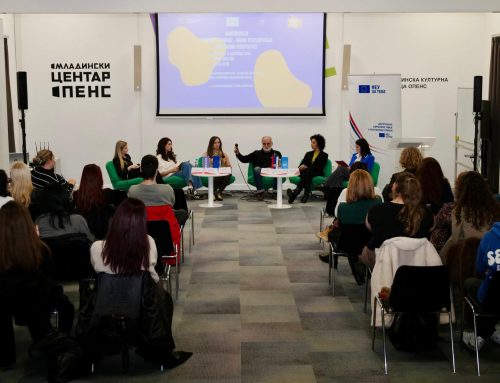The EU Resource Center for Civil Society project serves as a support hub for civil society representatives in Serbia’s European integration process. By introducing topics that have not previously been in the spotlight of civil society—such as consumer protection, spatial planning and urban policy, and transport policy—the Belgrade Open School and its partners are creating space for new and fresh initiatives from organizations and informal groups.
“This project envisions support for all representatives of the civil sector, ranging from organizations and informal groups to the media. In addition to financial support programs, we will also provide assistance by strengthening internal capacities of civil society representatives through training and individual mentoring,” explains Bojana Džulović, the project manager.
The project, which began on January 1, 2023, and will run until December 31, 2026, provides for five types of grants, encompassing a wide range of organizations based on their capacities.
Rapid response grants offer urgent support to organizations, ranging from €3,000 to €5,000, and are approved in a short time frame. At least seventeen of these grants will be awarded over the next three years.
Organisations in the early stages of development and without relevant experience—but which have chosen to work in underrepresented areas within the civil sector—can apply for seed money grants.
Action grants are advocacy-focused and aim at reform policies and processes that are either ongoing or due to commence. These grants are available in three categories: small (up to €10,000), medium (up to €20,000), and large (up to €40,000), depending on the level of organisational development.
Uncommonly for Serbia, support for informal groups will be provided through intermediary organisations, which will be responsible for administering the grants on their behalf.
Regarding this support mechanism, Bojana Džulović states: “In practice, this means that intermediary organisations will receive an institutional grant of €20,000 to carry out their own activities, while also administering grants for at least ten informal groups.”
A key aspect of the project is decentralisation, and the creation of regional resource centres is a practical way to implement this. In south-eastern Serbia, the regional resource centre is ENECA; in Vojvodina, it is the Novi Sad School of Journalism; and in the western and south-western regions, it is the Užice Centre for Children’s Rights. In addition, expert resource centres have been established, comprised of organisations recognised for their expertise in specific fields. For example, Sigurne staze will focus on transport policy, Nova planska praksa on urban planning, and Young Farmers will provide expert support in agriculture and rural development.
ENECA, based in Niš, is the Regional EU Resource Centre for southern and eastern Serbia, and also serves as a national expert organisation in consumer protection, competition policy, and local economic development.
Milivoje Jovanović, coordinator of this regional centre, emphasises that civil society organisations often lack the expertise needed to work in areas where ENECA offers professional support: “These topics are part of negotiation Chapters 8 (Competition Policy) and 20 (Industrial Policy and Entrepreneurship), and it is important for us to strengthen the capacity of organisations so they are able to advocate effectively on these issues at the local and regional level.”
Over the course of its four-year duration, the project will support at least 300 civil society organisations and 280 informal groups, enabling them to contribute to the implementation and monitoring of reforms in the EU accession process. Support for civil society will include not only financial assistance but also capacity-building through training and one-to-one mentoring.






